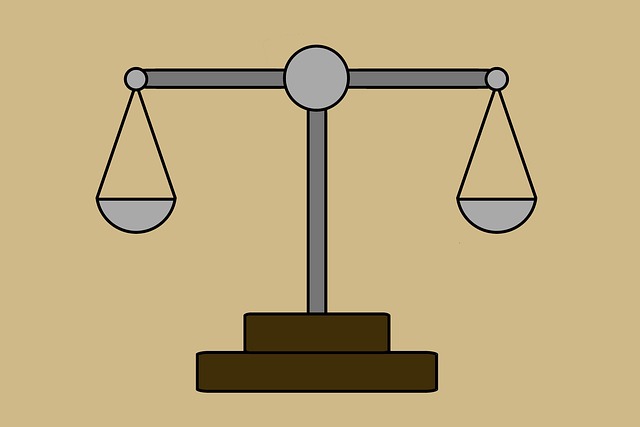Healthcare organizations face significant risks from securities law violations, which can lead to severe penalties and reputational harm. Effective prevention involves robust internal controls, staff training, and meticulous record-keeping. Early identification of potential breaches through document reviews is key. Strategic defenses tailored to specific infractions, coupled with transparent communication, are vital for favorable outcomes, including litigation strategies that focus on challenging evidence and constructing compelling narratives. Post-trial phase requires strategic planning for future compliance, adapting litigation strategies to navigate complex regulatory landscapes.
In the complex landscape of healthcare, navigating legal issues related to securities law is paramount. This article provides an in-depth exploration of litigation strategies for securities law violations, focusing on understanding common violations, pre-litigation preparedness, and the intricacies of the litigation process. We delve into post-trial impacts and offer insights on ensuring future compliance, equipping professionals with essential tools to mitigate risks and protect their practices. Discover key considerations for successful navigation through the labyrinthine legal system, specifically tailored to healthcare securities law.
- Understanding Securities Law and Common Violations
- Pre-Litigation Preparedness and Strategies
- Litigation Process and Key Considerations
- Post-Trial Impact and Future Compliance
Understanding Securities Law and Common Violations

Understanding Securities Law is paramount for healthcare organizations aiming to navigate complex legal landscapes. This field, governed by stringent regulations, focuses on protecting investors from fraudulent practices. Common violations include misrepresenting financial information, omitting material facts, and offering securities without proper registration. These lapses can lead to significant litigation strategies for securities law violations, with potential consequences including substantial fines, reputational damage, and even criminal charges.
Effective compliance measures and robust internal controls are essential tools to prevent such breaches. When faced with allegations, corporate and individual clients must employ strategic defenses tailored to the specific violation. Achieving extraordinary results often hinges on meticulous documentation, transparent communication, and a deep understanding of regulatory requirements.
Pre-Litigation Preparedness and Strategies

In navigating complex healthcare legal issues, pre-litigation preparedness is paramount, especially when dealing with potential securities law violations. A robust strategy involves a meticulous review of relevant documents and records to identify potential breaches or omissions early on. This includes scrutinizing financial disclosures, regulatory filings, and internal communications to ensure compliance with laws such as the Securities Act of 1933 and the Exchange Act of 1934. Proactive measures like enhancing internal controls, conducting staff training on regulatory updates, and establishing robust record-keeping protocols can significantly mitigate risks before litigation arises.
Effective pre-litigation strategies for securities law violations often entail a multi-faceted approach tailored to serve both corporate and individual clients. For instance, engaging in transparent communications with stakeholders, implementing comprehensive compliance programs, and fostering a culture of ethical conduct within the organization can protect not only businesses but also their philanthropic and political communities from potential legal repercussions. A well-prepared defense, aided by expert white collar defense attorneys, can make all the difference in resolving disputes amicably or limiting damages should litigation become inevitable.
Litigation Process and Key Considerations

The litigation process for securities law violations is a complex and intricate dance, requiring a strategic approach from legal experts. When navigating this legal landscape, several key considerations come into play. One of the primary strategies employed in such cases is developing robust Litigation Strategies for Securities Law Violations. These strategies aim to protect individuals and organizations accused of white-collar crimes, ensuring they receive fair treatment while exploring potential defenses against charges.
A critical aspect involves understanding that avoiding indictment is not solely about challenging evidence but also building a compelling narrative. Legal teams must carefully navigate the details, considering their client’s actions in light of the law. By presenting a well-structured defense, involving extensive document review and expert testimony, they can mitigate risks. Moreover, the involvement of philanthropic and political communities can sometimes play a role in these cases, offering insights into motivations and potentially influencing outcomes, especially when addressing broader societal implications.
Post-Trial Impact and Future Compliance

After a trial, regardless of the outcome, the work is far from over for legal teams, especially when dealing with complex cases like securities law violations. The post-trial phase involves meticulous analysis and planning to ensure effective future compliance. This is crucial, particularly in high-stakes cases where clients rely on their attorneys’ expertise to steer them through regulatory labyrinths.
Litigation strategies employed during trial can shape a company’s or individual’s path toward compliance moving forward. Legal teams must adapt these strategies to navigate the specific requirements of securities regulations, demonstrating an understanding of not just the law but also its practical application in various scenarios. This proactive approach ensures that clients are equipped to avoid future legal pitfalls and maintain robust compliance practices.
Navigating healthcare legal issues, especially those concerning securities law violations, requires a comprehensive understanding of regulatory frameworks and effective litigation strategies. By grasping the intricacies of pre-litigation preparation, the nuances of the litigation process, and the post-trial implications, professionals can ensure better compliance and mitigate risks. Implementing these Litigation Strategies for Securities Law Violations not only protects against legal pitfalls but also fosters a culture of ethical practice within healthcare institutions.






